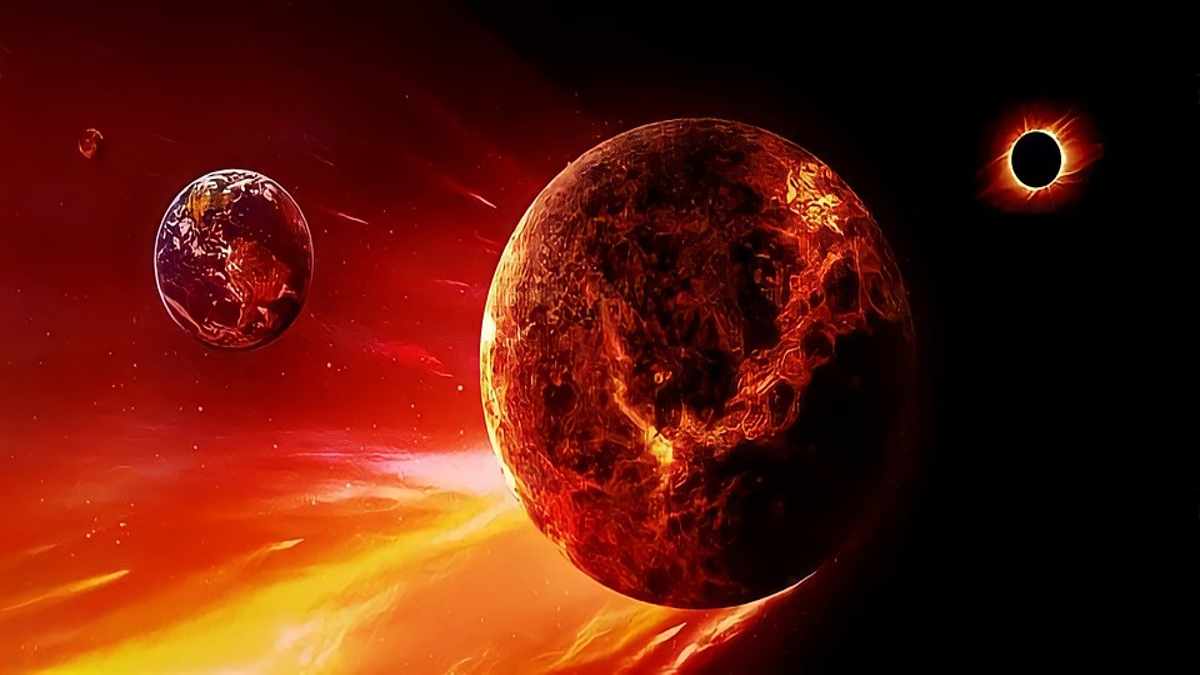The atmosphere of the planet Venus has always been a topic of discussion. How not, experts are still researching what content is in it.
Some time ago there was an opinion that Venus could be an alternative place besides Earth for living things to live after Mars.
Indeed, the position of Venus which is not far from Earth makes this hypothesis appear. However, one other reason is the content in the atmosphere.
Baca Juga: Perbedaan Astronomi dan Astrologi, Ilmu Pasti serta Takhayul?
The reason the atmosphere of the planet Venus is dangerous for life
In solar system we have eight planet that revolves around the sun. These planets become Earth’s neighbors.
Of the eight planets that exist, it turns out that only Earth has life on it. That’s because the Earth provides some of the essential needs of living things, such as water and oxygen.
But since science astronomy developing more sophisticated, scientists are trying to find other planets that can live inhabited. They are looking for some terrestrial or Earth-like planet.
That’s because the population on Earth is getting higher. Venus is one of the planets that appeared in the study.
The Water Content In It Is Too Low
Scientists have discovered phosphine gas inside Venus. Phosphine gas itself only exists on Earth that supports life.
But a new study from Nature Astronomy has dashed hopes of finding a replacement planet. They say that Venus will not be able to accommodate life.
Although there is phosphine gas, it turns out that the atmosphere of the planet Venus contains very little water. The water content in them is so low that Earth’s most tolerant microbes cannot cope with drought.
Baca Juga: Teori Heliosentris dan Geosentris: Sejarah dan Pengertiannya
The scientist calculated water activity and vapor pressure on individual molecules in the atmospheric clouds of the planet Venus.
“We concluded that it was a hundred times lower than Earth. Even for the toughest organisms to survive after we examined the effective concentration of water molecules in the clouds, explains John Hallsworth.
Hallsworth also responded to the phosphine that microorganisms in Venus’ clouds produce. Microorganisms can survive and reproduce in water droplets in the atmosphere only when the temperature permits.
Microorganisms on Earth can survive extreme conditions at temperatures of minus 40 degrees Celsius and water activity on a scale of 0 to 1. The lowest life stage is 0.585.
Meanwhile, the activity level of the water in the molecular cloud of Venus is only 0.004. Living systems of organisms are mostly dehydrated, inactive, or reproduce.
McKay of NASA says that in this case Jupiter looks much more likely. At least Jupiter has a layer of clouds that can meet the needs of water. Even so, according to him, it still doesn’t make it worth living.
There is a lot of Carbon Dioxide and Sulfur
Apart from the lack of water content in the atmosphere that makes the planet Venus unable to replace Earth, the carbon and sulfur content in its atmosphere is also another reason.
Before discussing further, please note that Venus is in second order from the Sun. That means, Venus is in front of Earth.
In front of Venus is still there Mercury planet which is very much with the Sun. Even so, it turns out that Venus is the hottest planet.
This is related to the content of carbon dioxide and sulfur in the atmosphere of the planet Venus. Carbon dioxide is a compound that can store heat.
On Venus there is carbon dioxide along with sulfur in very large amounts and surrounds the planet. That’s why heat can’t let the planet out.
This is different from Mercury which even though it is near the Sun can still release its heat.
Baca Juga: Perbedaan Komet dan Asteroid yang Terlihat Mirip Namun Jauh Berbeda
The temperature on the surface of Venus reaches 462 degrees Celsius. The heat is like the greenhouse effect on Earth due to carbon dioxide and sulfur in the atmosphere of the planet Venus.
Scientists once sent an unmanned spacecraft to Venus for research. The result was that the plane was only able to last a few hours.
The spacecraft ended up being destroyed by the extremely high temperatures. Just imagine if there were living things there?
Living things like humans will immediately burn when they arrive on the planet Venus. That’s why this planet is not suitable as a second Earth.
In addition to the content in the atmosphere of the planet Venus, basically every planet other than Earth tends to have high levels of ultraviolet radiation so it is not good for living things.
–


